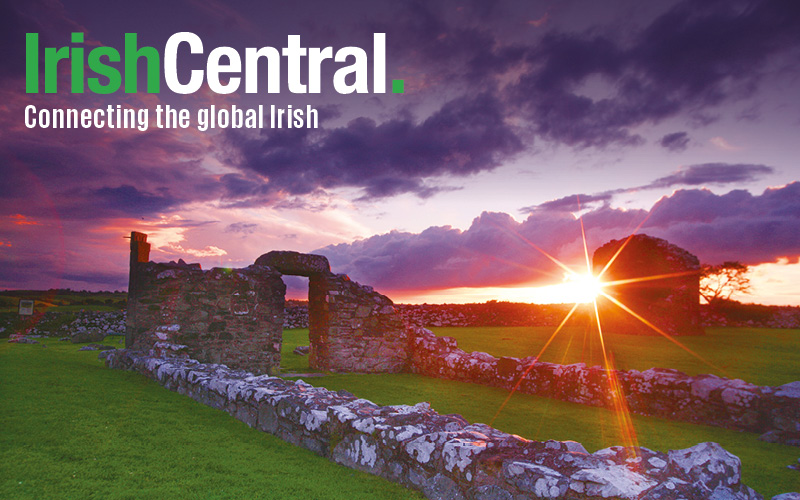The Barry name is mainly of Norman origin and is very closely associated with County Cork. There is also a less common Gaelic origin from the Irish family O'Beargha, which was Anglicized as O'Barry or Barry. This family was also of Munster origin. Even today around 50 percent of the Barrys in Ireland are in Cork or other parts of Munster. A current prominent member of the family is Peter Barry, a member of the Irish Parliament and a former Irish Foreign Minister. His family run the famous Barry's Tea Company in Cork. The first association of the family with Cork was in 1179 when the Norman adventurer Philip de Barri obtained grants of land. This family prospered and, like many other Normans, adopted Irish customs and name forms. They formed several branches which, in the Irish manner, were named Barry Mr (or Great Barry), Barry Roe (Red Barry), Barry Og (Young Barry) etc. The Annals of the Four Masters record that Barry Roe, one of the Clan leaders, and the chiefs of his people were lost at sea in 1507 while returning from a trip to Spain. Two baronies in Cork county (Barrymore and Barryroe) are named after branches of this family. In later centuries some of the family also became nobility and held titles such as Baron Barry, Viscount Buttevant, and Earl Barrymore. Among the castles built by the family were Castlelyons, and also Liscarroll Castle, which was one of the largest castles in Ireland. The family also have their name to the Mayo town of Castlebar (Caislean an Bharraigh) during the time that they also held lands in the area. Both David Barry, who was Earl Barrymore, and Gerald Barry fought on the rebel side in the 1641 Rebellion, while more recently Kevin Barry (1902-1920) was one of the rebels hanged during the War of Independence. In America there are many notable Barrys, although it must be noted that there is also a Barry name of English origin which means that not all U.S. Barrys are necessarily of Irish origin. The most famous Irish Barry was Commodore John Barry (1745-1803) who was born in Tacumshane, County Wexford, and went to sea at an early age. In 1760 he settled in Philadelphia where he became a prosperous ship master and owner. At the outbreak of the War of Independence he enthusiastically offered his services to the Continental Congress. He was placed in charge of the brig Lexington in which he took the British ship Edward. This was the first commissioned American warship to take a British warship in battle. Later in the war he commanded the Raleigh which took the British ships Atlanta and Trespassy. He died as head of the American Navy, of which he is widely regarded as the founding father. There were also 98 other Barrys in the American Revolutionary Army. These included Surgeon Michael Barry of the 3rd Continental Dragoons, Virginia, Captain Patrick Barry of the Pennsylvania Navy, and Captain Andrew Barry of the South Carolina Partisan Rangers. A Barry of less warlike disposition was Patrick Barry (1816-1890) who was born near Belfast as the son of a farmer. He became a National School teacher at age 18 and went to the United States where he joined a nursery and became an expert in fruit growing. His book Barry's Fruit Garden was a classic during the end of the last century. He also founded the Fruit Growers of New York and was a leading figure in many of the agricultural bodies in the state. The name Berry is a much less common name and is sometimes thought to be a derivation of Barry. It is not, in fact, related to Barry, although the origins of the Irish Berrys are varied. The major root is probably the Irish name O'Beara, which was Anglicized to Berry or Beary. It was a small sept which lived in the area of County Offaly. There is a complicated mix of other possible derivations for the name including the English name Bury or Berry. James Berry (1842-1914) was a folklorist and seanchai (storyteller). He was born in Mayo and educated at a hedge-school, and collected folk-tales and also invented stories in the traditional manner. A large number of his stories have been published. In a previous column the Beirne and O'Beirne family was described. Dr. Bryan Beirne has now prepared an "interim" report on the History of the O'Beirnes, which includes biographies of many of the name. This is entitled "Some O'Beirnes", and is the result of his researches and contributions by many others. He is willing to make the report available to those who might be able to contribute further information, leads as to where it might be found, or corrections. He can be contacted at Dr. Bryan Beirne, BioSciences, Simon Fraser University, Burnaby, BC, Canada V5A 156. We should point out, once again, that Beirne is an entirely separate name to Byrne and the report is not relevant to Byrne history.




Comments